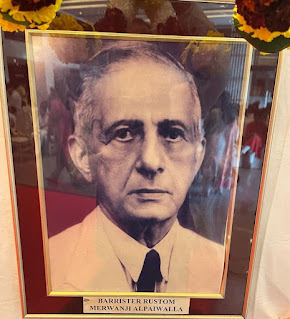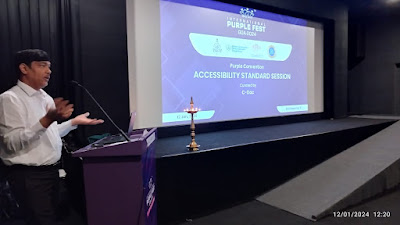Dear Colleagues,
In a significant stride towards inclusivity, the Supreme Court of India has embarked on a journey to address accessibility issues for persons with disabilities, women, and senior citizens. This monumental effort was underscored by the release of the report titled “A Court for All: Paving the Way for Accessibility in the Supreme Court for Persons with Disabilities, Women and Senior Citizens” in October 2023, by the Supreme Court Committee on Accessibility.
The report serves as a mirror reflecting the stark realities faced by marginalized groups within the judicial system. For too long, individuals with disabilities, pregnant women, and senior citizens have encountered formidable barriers hindering their access to justice. These barriers, ranging from physical infrastructure inadequacies to functional service limitations, have not only impeded their physical access but also undermined their dignity and rights within the corridors of justice.
Physical accessibility challenges highlighted in the report include the absence of wheelchair-friendly amenities, unclear signage, inadequate tactile flooring, and insufficient designated seating in courtrooms and waiting areas. These deficiencies not only hinder mobility but also symbolize the exclusionary nature of the justice system.
Moreover, the report sheds light on functional service challenges, such as the lack of sign language interpreters, inadequate technology for the visually impaired, and inaccessible online resources. These issues not only inconvenience but also perpetuate systemic discrimination against marginalized groups.
However, the report goes beyond mere identification of problems; it offers pragmatic recommendations for improvement. From introducing accessible route maps and refurbishing key facilities to enhancing online platforms and ensuring the availability of sign language interpreters, the recommendations pave the way for a more inclusive judicial system.
Nevertheless, while the report provides a comprehensive overview of accessibility issues, there are areas where it could further elaborate. Specific details regarding financing or budget allocations for the recommended changes, as well as detailed implementation plans with monitoring mechanisms, are notable omissions that warrant attention.
It is pertinent to share that the Committee had solicited feedback from individuals with disabilities and disability rights experts through questionnaires, to arrive at recommendations that meet the diverse needs of stakeholders.
Furthermore, the Committee's focus on understanding the unique challenges faced by women, particularly during pregnancy, and senior citizens also reflected a commitment to inclusivity at every level of the judicial process. Additionally, attention had been given to the specific needs outlined in the Human Immunodeficiency Virus and Acquired Immune Deficiency Syndrome (Prevention and Control) Act, 2017, highlighting the importance of accommodating individuals with diverse health conditions.
The diverse composition of the Committee, comprising experts from various fields, underscores the collaborative effort to drive meaningful change. With inputs from accessibility experts, legal professionals, and representatives from the Supreme Court Bar Association, the Committee has leveraged a wealth of expertise to develop comprehensive recommendations.
As the Supreme Court endeavors to operationalize these recommendations, it is imperative to recognize that ensuring accessibility is an ongoing commitment. Robust monitoring mechanisms and timely reviews are essential to ensure that the recommendations translate into tangible improvements within the prescribed timelines.
In essence, “A Court for All” is not just a report; it is a testament to the Supreme Court's commitment to upholding the principles of equality and justice for all. As we embark on this journey towards inclusivity, let us heed the call to action articulated in the report and work collectively towards building a more accessible and equitable future for India.
Read the report- A Court for All, here:






